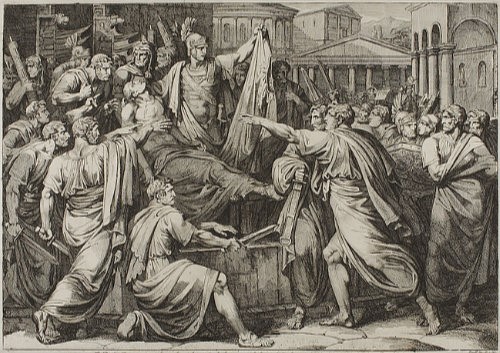Did you “beware the Ides of March” this year? Well, if you’re reading this, you certainly have better luck avoiding disaster than Julius Caesar, the Roman dictator who was stabbed to death by a group of nobles on March 7, making the date infamous.
With such a dramatic end to a notable rule, it’s natural that the story of Julius Caesar has not only endured, but influenced classical composers. Read on to earn about several works that were inspired by this leader and his noteworthy demise.
In February 1724, George Frideric Handel’s opera Giulio Cesare in Egitto premiered. The opera is set four years before the Caesar’s death, when he travelled to Egypt as part of a military campaign. The jaunt eventually led to his affair with Cleopatra VII … va va voom! The opera was quite popular in its time and was widely performed in England and Germany. It was actually an incredibly expensive production for its time, involving multiple star singers, a full orchestra, and elaborate sets depicting various Egyptian scenes.
Robert Schumann’s Julius Caesar Overture is based on Shakespeare’s play. Schumann even noted important plot points of the play while composing, including several of the darkest moments Shakespeare portrayed: the conspiracy, the Ides of March, death, and revenge. (If you’re looking for a lighthearted piece of music, look elsewhere!) Sadly, the premier performance of the piece in 1852 would mark the beginning of the mental illness that plagued the end of Schumann’s life.
In 1877, a little-known Austrian composer named Hans Rott also wrote a Julius Caesar Overture. Remarkably, he was only 19 years old at the time. This young talent suffered from visual hallucinations and died from tuberculosis just six years after composing the overture. He didn’t live long enough to write very much music, but his contemporary Gustav Mahler considered him a genius. Fortunately, some of his compositions survived … including the one inspired by Caesar.

